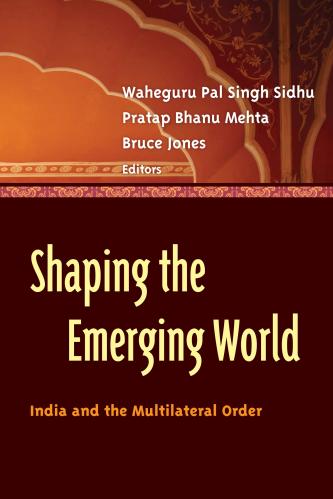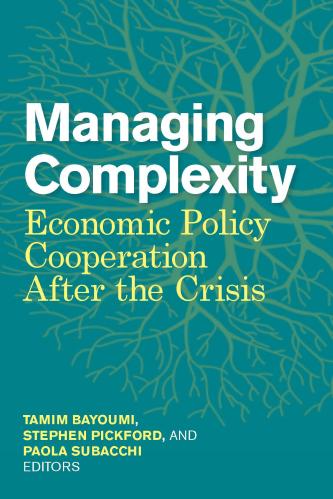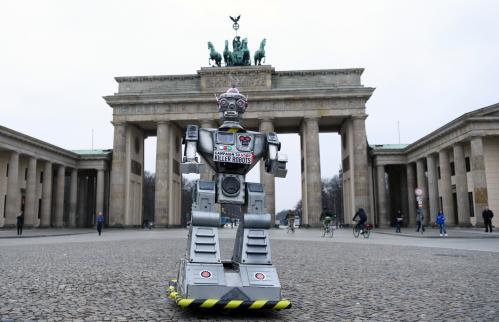On September 1, 2017, Russian President Vladimir Putin addressed a nationwide group of Russian students on their first day of school. “Artificial intelligence is the future, not only for Russia, but for all humankind,” he said. “Whoever becomes the leader in this sphere will become the ruler of the world.”
It is an assessment that would be unwise to ignore, even if the goal is simply economic prosperity as opposed to world domination. Over the coming decade, AI will become linked with geopolitics to a level that is difficult to fully comprehend today. Why? Because geopolitics is determined in large part by many of the same domains that AI is poised to revolutionize.
AI will make manufacturing, transportation, and trade more efficient, improve crop yields, open a wealth of new opportunities for technology advances, reshuffle labor markets, and force a fundamental rethinking of approaches to national security and the architecture of modern militaries. In the coming decades, countries that are able to successfully cultivate and harness a culture of AI innovation will be well positioned for both economic growth and improved national security. By contrast, countries that maintain an overreliance on legacy infrastructure and economic models will face increasing challenges in sustaining global competitiveness.
U.S. leadership in AI
It is also important to emphasize that, geopolitically speaking, AI is not a zero-sum game. Much ink has been spilled recently over China’s extraordinary level of investment in AI, often accompanied by the implication that Chinese AI progress will inevitably come at the expense of the United States. But that logic implies a non-existent causality. China is betting on AI because its political and business leaders have correctly identified it as a critical element of continued Chinese economic growth. That in no way inhibits the United States from making its own investments in AI.
And, that is exactly what is occurring. The United States is a global AI leader, with an ecosystem that includes not only extensive AI research at major companies like Google, Amazon, Facebook, Apple, and IBM, but also hundreds of AI-focused startups in areas ranging from drug discovery to education to manufacturing. The collective American commercial sector investment going into AI is immense. The U.S. government is investing as well. In September 2018, DARPA announced a “$2 Billion Campaign to Develop Next Wave of AI Technologies” with the aim of “transforming computers from specialized tools to partners in problem-solving.”
Furthermore, it’s not only about dollars. The United States leads the world in AI human capital—an advantage that stands to grow even further given the extensive efforts in U.S. universities to ramp up research and teaching in AI and related topics.
In fact, some of the biggest potential AI challenges in the United States are actually at the level of policy and not technology or human capital. Maintaining AI preeminence is a multi-decade endeavor—a far greater time scale than the term lengths of elected officials. This lowers the incentives to implement AI-focused policy strategies that might take several years or more to bear fruit. Overregulation is another threat to American AI innovation, as it could hamper both the incentives to develop new AI technologies as well as the speed of delivering them to the marketplace.
A global AI ecosystem
While the United States and China are the largest AI players, the ecosystem is global. Israel and the United Kingdom have thriving AI sectors. Earlier this year, the French government announced a major public investment in AI. Facilitating AI innovation is also a key focus of governments in Japan, South Korea, and Russia.
Many of the benefits of country-specific AI investments will be both national and global. AI will make it easier to predict violent storms. It can help with drug development to help reduce the impact of disease. It can improve agricultural yields, and help manage the complexities of the supply chain for food, medicine, and other goods. All of these things have profoundly important geopolitical implications. In a September 2018 Washington Post piece, Nicolas Berggruen and Nathan Gardels wrote that “artificial intelligence has become the most powerful resource that will determine the fate of nations in the times ahead.” It’s an astute observation that will likely prove true.
AI is not magic, and there is plenty it cannot do. But AI is perhaps the only technology in recent memory that, despite all the hype, will actually turn out to have been underhyped once its impacts are fully appreciated. And while the full future impact of AI is impossible to predict, one thing is clear: As we move towards the middle of the 21st century, a nation’s geopolitical standing and its strength in AI will be increasingly intertwined. It’s a correlation that leaders across the globe will surely have in mind as they work to achieve their geopolitical aspirations.
The Brookings Institution is committed to quality, independence, and impact.
We are supported by a diverse array of funders. In line with our values and policies, each Brookings publication represents the sole views of its author(s).











Commentary
Artificial intelligence and the future of geopolitics
November 14, 2018